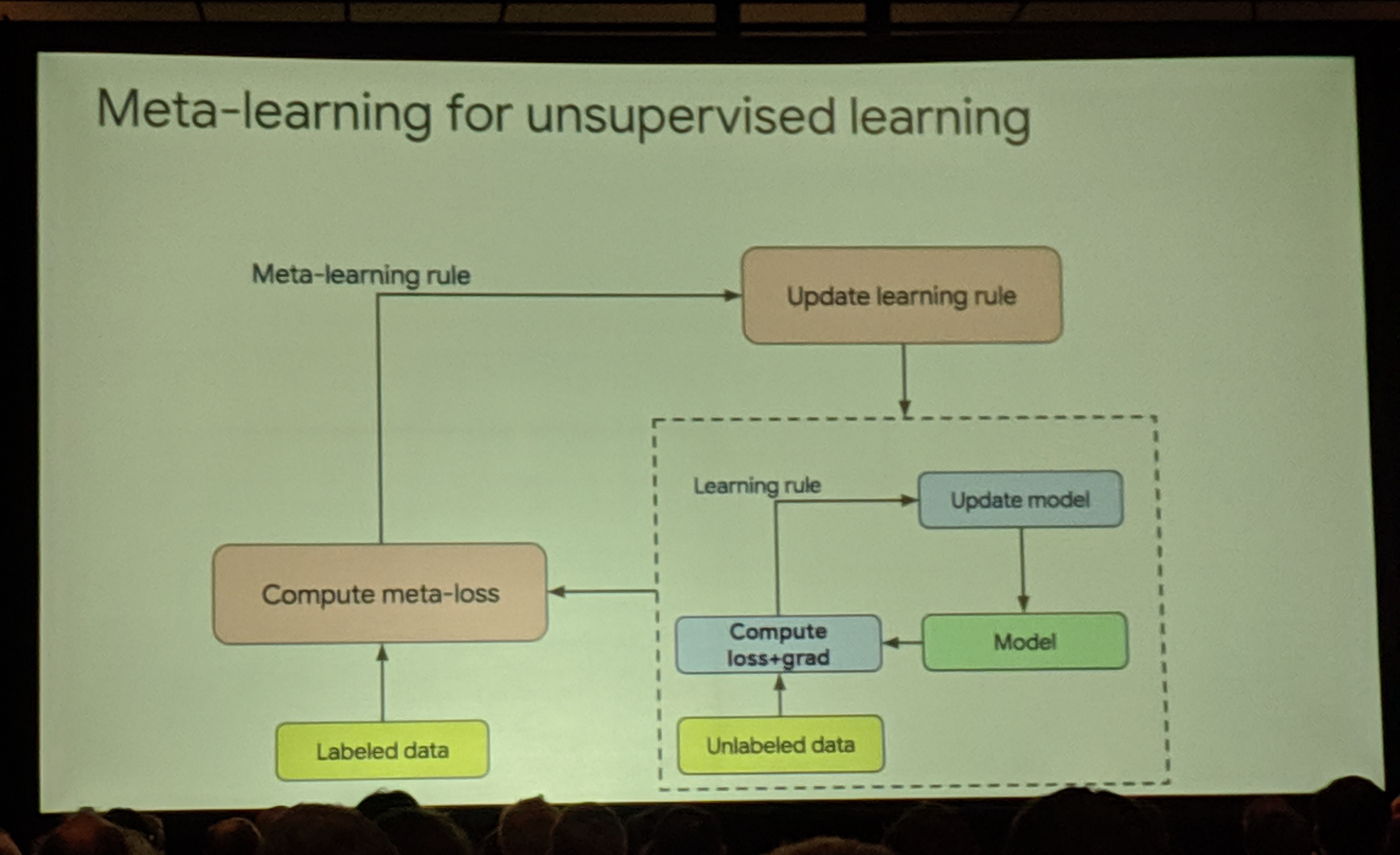Part of my series of notes from ICLR 2019 in New Orleans.
Meta-Learning Update Rules for Unsupervised Representation Learning
- want representations that capture high-level attributes of data, without using labels
- currrent approaches:
- hand-design loss functions (autoencoders)
- hand-design target statistics (sparsity)
- hand-design updates (GANS)
- mismatch between objective & desired task
- instead of designing by hand, metalearn what to learn with help from the supervised task directly

- want algorithm to be transferrable to different architectures
- cf. learning transferrable features
- metaloss to update learning rule which is used in inner loop
- inner loop is unsupervised, but outer meta-learning loop can use labeled data
- wow this is so obvious and wonderful
- don’t actually need inner loss at all, use a different learning rule
- learning rule parameterised by MLP, these parameters are what we learn to update
- generalises to new datasets, architectures, modalities
- e.g. metalearn on images and evaluate on text (!)
- main limitation is scale (of course)
- question asker: “just to be clear, there’s no way your method would find something like Deep InfoMax”
- (an impassioned defense of ML scientists in the face of meta-learning
 )
)
- (an impassioned defense of ML scientists in the face of meta-learning
Temporal Difference Variational Auto-Encoder
- environment models for agents in RL
- how to model temporal data?
- want world state abstracted from observations
- make temporally extended predictions
- include uncertainty
- I… stopped paying attention, again, cut me some slack I’ve been doing pretty well
Transferring Knowledge across Learning Processes
- AI should leverage prior knowledge maximally
- one way is transfer learning – use source model
- can have information loss since model doesn’t know what the future task might be
- meta-learn instead!

- Leap: inductive bias over learning process
- takes into account (approximate) length of learning trajectory
- updates initialization to minimise trajectory length
- get meta-gradients (almost) for free
- more computationally efficient, scales beyond few-shot learning